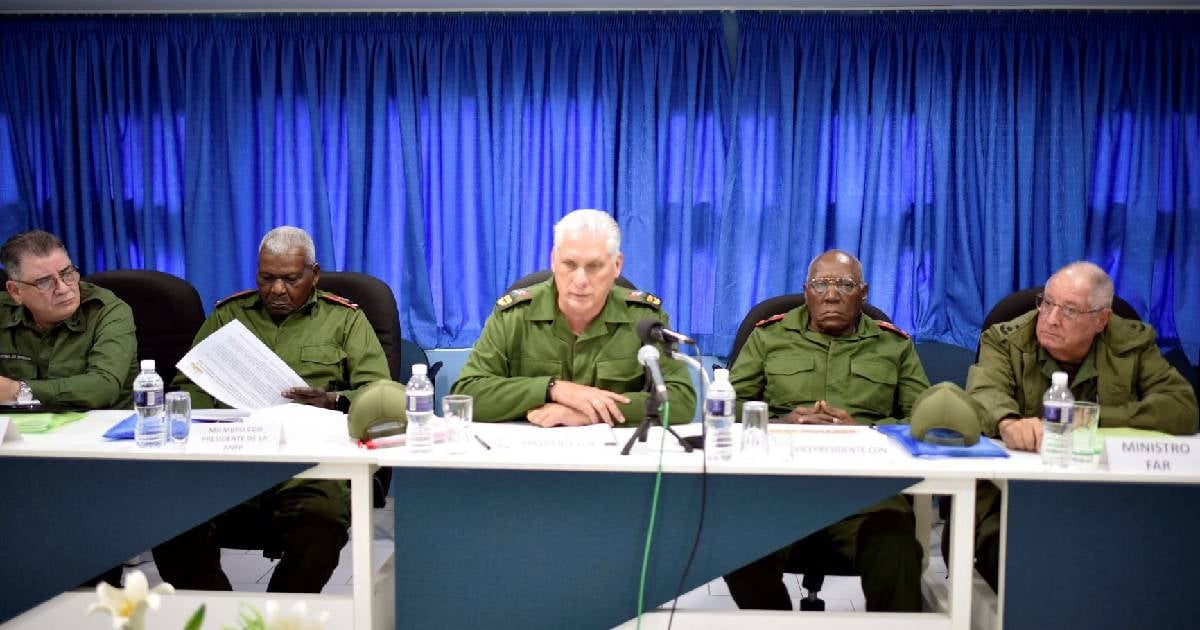Bruno Rodríguez Parrilla, the Cuban Foreign Minister, took to X to declare that despite the U.S. imposing travel restrictions on Cuban political and military leaders and maintaining what he described as a "prolonged and ruthless economic war," the United States will not succeed in breaking "the will of our people or their leaders."
Earlier, Deputy Foreign Minister Carlos Fernández de Cossío echoed this sentiment on the same platform, labeling the U.S. measures as acts of "arrogance and helplessness." He stated, "The intended sanction is worn with pride, as a badge of honor for serving a dignified, rebellious, and indomitable people."
Both officials attempted to portray the visa restrictions as a badge of honor. However, the reaction on social media was far from supportive or patriotic. Responses flooded the posts with mockery, pointed out contradictions, and a common question emerged: if they despise the "empire" so much, why insist on traveling there?
One user questioned, "If the U.S. is so terrible, has us 'blocked,' and so on, why do your president or any leader want to go there?" Another response was more straightforward: "If they hate the empire, there's no reason to travel there. So the visa withdrawal shouldn't affect them at all."
Many comments agreed that the Cuban people’s will has not been broken by the United States but rather by their own government, which has oppressed, censored, and impoverished the population for decades.
One user responded directly to Rodríguez, saying, "It's true the U.S. hasn't broken the Cuban people's will. But those who have trampled it for decades are the same leaders who now play the victim while they repress, lie, and live like royalty. Don't speak of dignity when what you defend is your power, not the people."
Another commenter noted that on July 11, 2021, "it became clear that the people do not want them, and the U.S. does not have sanctions against the Cuban people; the Cuban people are not the Communist Party nor the gang of criminals running the country. Deal with the trash that's consuming you," accompanying the post with images of garbage and debris in Havana.
U.S. Sanctions Target Cuban Leaders
The contrast between the official rhetoric and public perception is stark. While the government tries to construct a narrative of ideological firmness, the public—albeit virtually—sees opportunism, inconsistency, and victimhood.
On Friday, the U.S. government sanctioned Cuban leader Miguel Díaz-Canel for his involvement in "serious human rights violations" in connection with the anniversary of the July 11, 2021 protests on the island. The sanctions, announced by the State Department, include a travel ban for Díaz-Canel and his immediate family.
These restrictions could prevent Díaz-Canel from attending international events, such as the United Nations General Assembly, where he has been present in the past. His presidency is set to end in 2028.
This move also recalls similar actions: in 2019, former President Donald Trump imposed comparable sanctions on Raúl Castro and his children.
The U.S. also sanctioned Cuban Armed Forces Minister Álvaro López Miera and Interior Minister Lázaro Alberto Álvarez Casas, banning them and their families from entering the country.
This measure, reported by the Miami Herald following a State Department official's statement, is part of a broader strategy to hold high-ranking Cuban officials accountable for systematic human rights violations.
The sanctions, which include visa revocations or denials, were enforced under section 7031(c) of the Department of State's Appropriations Act for the fiscal year 2025. This legislation stipulates that foreign officials involved in significant corruption or severe human rights abuses are ineligible to enter the United States.
Additionally, visa restrictions were placed on several unidentified Cuban judicial and penitentiary officials accused of being responsible for or complicit in arbitrary detentions and acts of torture against July 11 protesters. Due to immigration confidentiality, the names of those affected were not disclosed.
As part of the diplomatic offensive, the State Department also updated its List of Prohibited Accommodations in Cuba, adding 11 new hotels, including the well-known "Torre K" in Havana's Vedado neighborhood, along with other recently opened luxury properties linked to the military conglomerate GAESA.
Understanding U.S. Sanctions on Cuba
Why did the U.S. impose sanctions on Cuban leaders?
The U.S. imposed sanctions on Cuban leaders due to their involvement in serious human rights violations, particularly in connection with the July 11, 2021 protests in Cuba.
What are the implications of these sanctions for Díaz-Canel?
These sanctions could prevent Díaz-Canel from attending international events, such as the United Nations General Assembly, and bar him and his family from entering the United States.
What is the scope of the U.S. sanctions against Cuba?
The sanctions include travel bans and visa restrictions on Cuban political and military leaders, judicial and penitentiary officials, as well as updates to the List of Prohibited Accommodations in Cuba.
